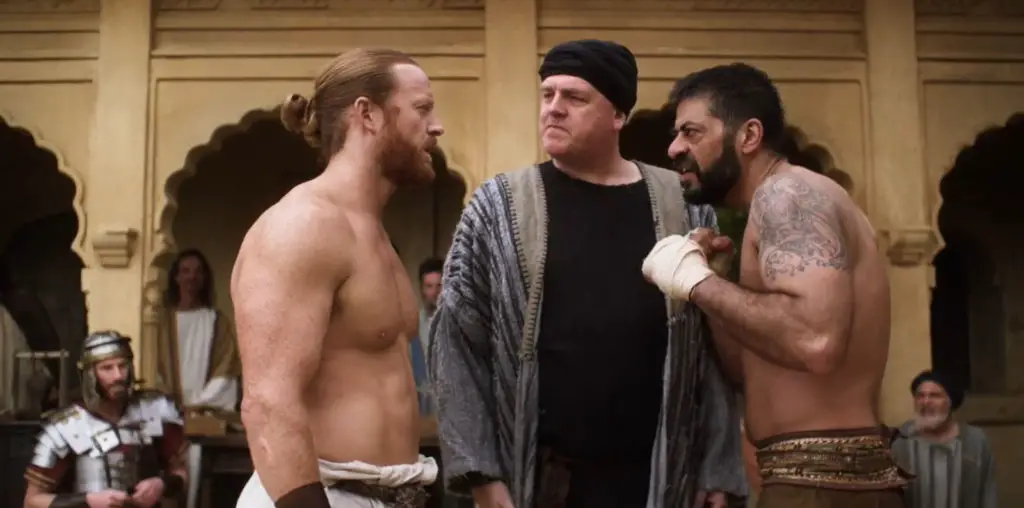
The last two films competing for the Palme d’Or screened Friday at the Cannes Film Festival, leaving everyone to guess which ones will receive the award and other prestigious prizes at the award ceremony on Saturday night. This year’s fest has revealed many strong contenders, and the eclectic jury faces a difficult task narrowing them down to a few victors.
Imagine a room presided over by Bosnian director Emir Kusturica, known for having a hot temper and being a control freak. Now add the strong-minded French New Wave director Agnès Varda, writer Toni Morrison, Spanish actor Javier Bardem, Turkish director Faith Akin, Hong Kong director John Woo, French director Benoit Jacquot and Indian actress Nandita Das. Now imagine they have to decide on one movie as the best out of 21.
The last film to receive a public screening was Tommy Lee Jones’s “The Three Burials of Melquiades Estrada,” a hard-edged and articulate film about racism, promises and justice. Some eyebrows were raised when Jones received a slot in the competition for his first movie (other than some made-for-TV material), but he earned the position with a film that paints a vivid portrait of a Texas boarder town that recalls both John Sayles and Sam Peckinpah. Jones plays a rancher whose good friend, a Mexican immigrant cowboy, is found with a bullet in him after coyotes dig his corpse out of a hastily made grave. None of the law enforcement officers care about this man’s death, and so Jones’s character takes matters into his own hands.
Barry Pepper provides a subtle transitional performance as a loose-cannon boarder patrolman who has just moved from Cincinnati with his mall-loving wife, who is used to being a popular high school student rather than a loner in a dumpy small town. Unnecessarily abusive to the immigrants, he attacks them despite his boss’s attitude, “Well, somebody’s gotta pick the strawberries.” With a swift, surprising and at time harrowing narrative, Jones gradually reveals that every life is complex and includes lies and loneliness, but none should be ignored.
Credit also goes to “Amores Perros” writer Guillermo Arriaga, who again plays with chronological sequences, using flashbacks to show a pivotal moment from two different points of view. Here, his well-constructed characters operate in a structure that serves them, improving on the time-manipulation overkill of “21 Grams.”
Jones’s film could win something, but this probably isn’t his year for the Palme d’Or. My mind can’t stop wandering back to Michael Haneke’s “Caché” (“Hidden”), and I’m not alone. The film has just won the independent Ecumenical Jury’s top prize and the FIRESCI organization’s Prix de Critique and for the last week has been the critical favorite of the festival, so it probably won’t win because then the press would have nothing to bitch about. The film tells a disturbing and unshakable story of guilty childhood memories and anonymous videotapes of a family’s life whose sender has an apparently impossible presence. In a Festival where I’ve seen all 21 films in competition and about 30 more in other selections, Haneke’s film has latched onto my mind as I consider how it distorts the meaning of the film screen until we are no longer sure how many lenses we are watching the film’s universe through. If the film doesn’t win the Palme d’Or, it should at least win another prize, perhaps for Haneke’s direction or screenplay, or Daniel Auteuil’s brilliant performance as a man losing his mannered and charming personality.
But Auteuil will have to contend with quite a few other great performances from films that I wouldn’t be upset to see take the Palme d’Or. Bill Murray brings his muted poignancy and smooth comic timing to the portrayal of an aged Don Juan who goes on a trip through America in search of the mother of a son who may or may not exist in Jim Jarmusch’s delicately observed “Broken Flowers.” Jeremie Renier plays a clueless young father who tries to atone for a serious mistake in the Dardenne brothers’ “L’Enfant.” And Viggo Mortensen undergoes an extreme personality relapse in David Cronenberg’s intelligent “A History of Violence.”
Other worthy films, though perhaps not up to this year’s Palme, include Frank Miller and Robert Rodriguez’s comic book noir “Sin City,” Hiner Saleem’s “Kilometer Zero,” a darkly comic examination of Iraqi-Kurdish relations and Gus Van Sant’s “Last Days,” which doesn’t match the power of his Palme d’Or-winning “Elephant,” but features some brilliant moments and refuses to falsely explain—or explain at all—the suicide of Kurt Cobain.
There is also talk of an award for “Manderlay,” Lars Von Trier’s sequel to “Dogville” which was tighter and more engaging than its predecessor. Its name keeps coming up despite several flaws in the movie and the uncertainty of how author and jury member Toni Morrison might react to its views of perpetual abuse and imprisonment of African Americans.
“Battle in Heaven” by Carlos Reygadas—a fascinating and creative, if not entirely successful, film—has been floated as a potential surprise winner, and its victory would certainly shake things up. There are factions for and against the movie, and boos will certainly be fighting with cheers in the press room if it is victorious.
It’s also worth noting that Woody Allen’s tense, elegant and sexy thriller “Match Point,” which began the first full day of the festival with a bang, remains a favorite. Many agree that if Allen allowed his films into competition, he’d likely be due for a prize. Those trying to predict these damn awards, however, can be grateful not to have more great ones to worry about.
Rear Jeremy’s previous report>>>
Visit the Cannes Film Festival website.

